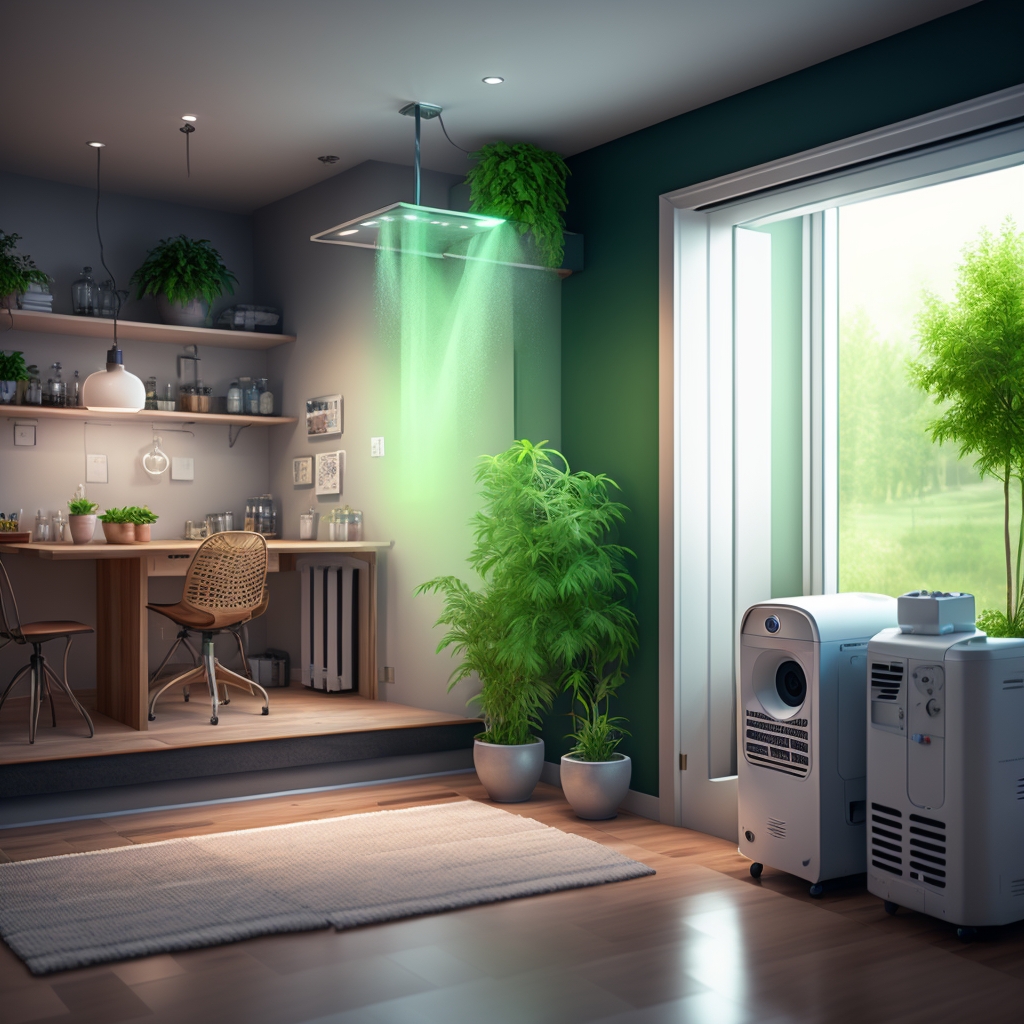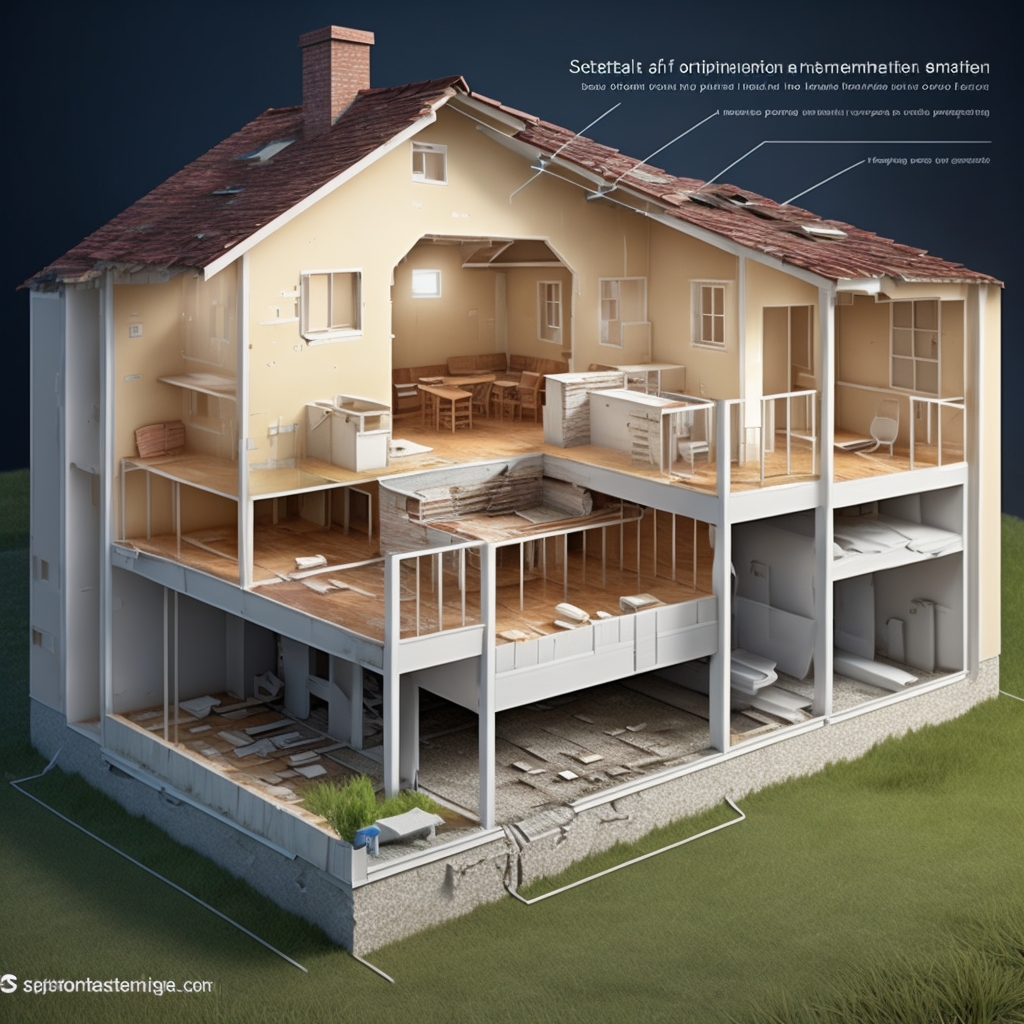“Choosing Between a Humidifier & Dehumidifier: The Perfect Solution for Your Basement!”

Choosing between a humidifier and a dehumidifier can often leave individuals perplexed, largely due to their competing functionalities. Humidifiers increase the air’s moisture level while dehumidifiers deduce it. While this might sound confusing, this article intends to provide a brief yet comprehensive explanation of how these devices work and their usage implications.
A humidifier is an electronic apparatus that infuses moisture into the air through a fan. This becomes highly functional during winter months as they help avoid skin dryness and enhance sleep quality. This appliance also benefits those suffering from cold, sinus issues, or throat irritations as it facilitates easier breathing. Furthermore, its usage can also be extended to your workspace in cases of low humidity environment. Each humidifier comes with varying settings that allow the user to regulate the desired level of humidity. Several models also have an additional heating feature.
However, if left unattended for too long, humidifiers may excessively increase humidity levels. Hence, it’s advisable to switch them off when not in use and clean them periodically. The benefit extends to eliminating static electricity, preserving wooden furniture from drying out, and repelling dust. These appliances operate silently and are fittingly adaptable to any room, with larger spaces of living rooms being the most desirable.
Conversely, a dehumidifier works on reducing air moisture levels. It provides a significant value by improving various conditions like warehouse storage, safekeeping of cigars, wines, and guns. Simultaneously, it guards valuable items against potential damage from mold and humidity, which is a common enemy of antiques, wood furniture, and musical instruments.
The efficiency of dehumidifiers can be gauged by their moisture removal capacity, which normally lies between 20% and 50%. Factors like water vapor quantity, operating environment’s relative humidity, and the device’s daily capacity contribute to this variation. With most modern devices having digital controls, they can be automated to switch on and off as needed. However, leaving them on all night might decrease your home’s temperature by over 3°C, unless the device has an auto-switch feature to turn off upon reaching a certain humidity level.
Given the counteractive nature of these devices, choosing between them for your basement becomes clearer. If the primary issue is excessive moisture, which can lead to mold formation, humidifiers should be avoided. Rather, dehumidifiers may efficiently alleviate this condition by swiftly deducting humidity levels. Thus, an automatic dehumidifier seems an optimal decision for preserving your basement and the valuable items therein from potential dampness.
Consider these insights, making an informed choice between a humidifier and a dehumidifier becomes feasible depending on your particular requirement. Whether it’s alleviating dry air ailments or preserving your valuable from dampness, each device has a unique functionality, which, when utilized correctly, can greatly enhance your living environment.
Discover the Reasons Why Your Basement is Constantly Damp!

Countless basements are typically damp and give off a musty smell, which are not very pleasant conditions for living. What’s more, a majority of people are left clueless to the roots of these moisture-related issues in their basements and how to stop them from damaging their home or posing a threat to their health. If the high humidity area of your basement has you fretting, diving deeper into the sources of the excessive moisture and possible ways to curb it should be enlightening.
1) Moisture Creeps through Walls and Floors
Rainwater sneakily penetrating through the crevices in the foundation walls, window sills, drainage openings, or door entrances is often a major cause of excessive dampness in a basement. In some instances, if roof drainage is not in shipshape, it may cause standing water in your basement leading to more pressing troubles.
One can’t help but figure out that the water then inevitably gets absorbed by whatever flooring décor you have in place. Often there is a host of factors that exacerbates the problem escalating to a severe humidity crisis. Some basements with concrete slabs may still be vulnerable to outdoor weather conditions even if they are underground. The concrete functions like a sponge, soaking up water when it rains and thereby constantly causing a damp sensation in the basement.
2) Installing Humidity Regulating Systems
Many people use humidifiers in basements for aesthetic beauty because they find dry environments unpleasant while some favor humidity levels lower than outdoors in winter. However, if your basement is struggling with excessive dampness issues, you would need to install a dehumidifying system, typically to maintain your house’s air without continuous humidity.
As an added incentive, these systems also curb dust mites and mold that poses serious health implications when found in large numbers.
3) Issues with Grout or Sealant
Moisture can easily seep through the grout and sealant connections in your basement walls and floor. If you see the humidity on the other wall side, try using a water-resistant product on these areas before considering any other measures.
Ensure you keep the unoccupied sections of the basement always dry as humidity tends to travel along pipes and electrical wires. It is also important to keep humidity out with vapor barriers which stop rainwater from seeping into basements or crawl spaces.
Dealing with Basement Dampness
Humidity won’t fix itself. It’s up to you to tackle surplus moisture effectively if you want a mold and mildew free, healthy house.
The best method to achieve this includes taking preventive steps such as installing dehumidification and humidity controlling systems and ensuring to mend leaky windows and doors promptly.
Also, note that concrete floors can’t be painted. So, if your basement sports an unfinished flooring material, it would be best to seal it before the dampness soaks in to avoid future deterioration.
What are some Signs Indicating that Your Basement May Need a Dehumidifier?
If your basement is not dehumidified, you may see damp floors and walls, mold formation, rusting on metal appliances (refrigerators, furnaces) that are left damp for extended periods. Here are some signs signaling that you need to dehumidify your basement:
– Damp marks or water stains on the basement floor.
– Musty odor from the basement.
– Mold grown on your basement walls (could also be inside your basement).
– Condensation on windows or walls pointing towards ineffective window sealing
– Quick rusting of your furnace or electric appliances.
– Issue of mold or rot on lumber stored in your basement.
Expert Advice: To stop your basement from becoming damp and prone to mold, regularly check for humidity at least twice a month. If your basement is underground or with less than four inches of gravel round it, you would definitely need a dehumidifier here.
Frequently Asked Questions
Where should I place my dehumidifier in the basement?
Placement should be in the middle if your basement covers less than 400 square feet. For larger basements, divide it into 200 square foot sections and install a dehumidifier in the center of each.
How often should I run the dehumidifier in my basement?
It’s recommended to run your dehumidifier 24/7 during the early spring, summer, and fall. However, switch it off when outdoor temperatures fall below 55 degrees Fahrenheit for three consecutive days. This is to avoid the extra electricity consumption as the cool basement air won’t be able to heat up efficiently at this temperature.
